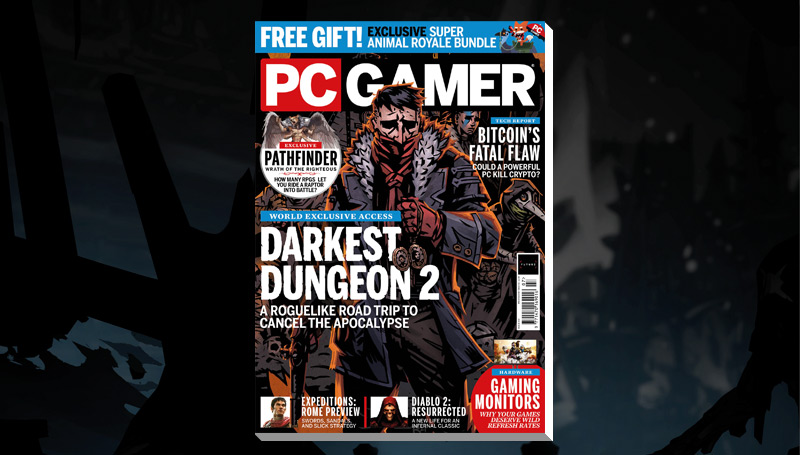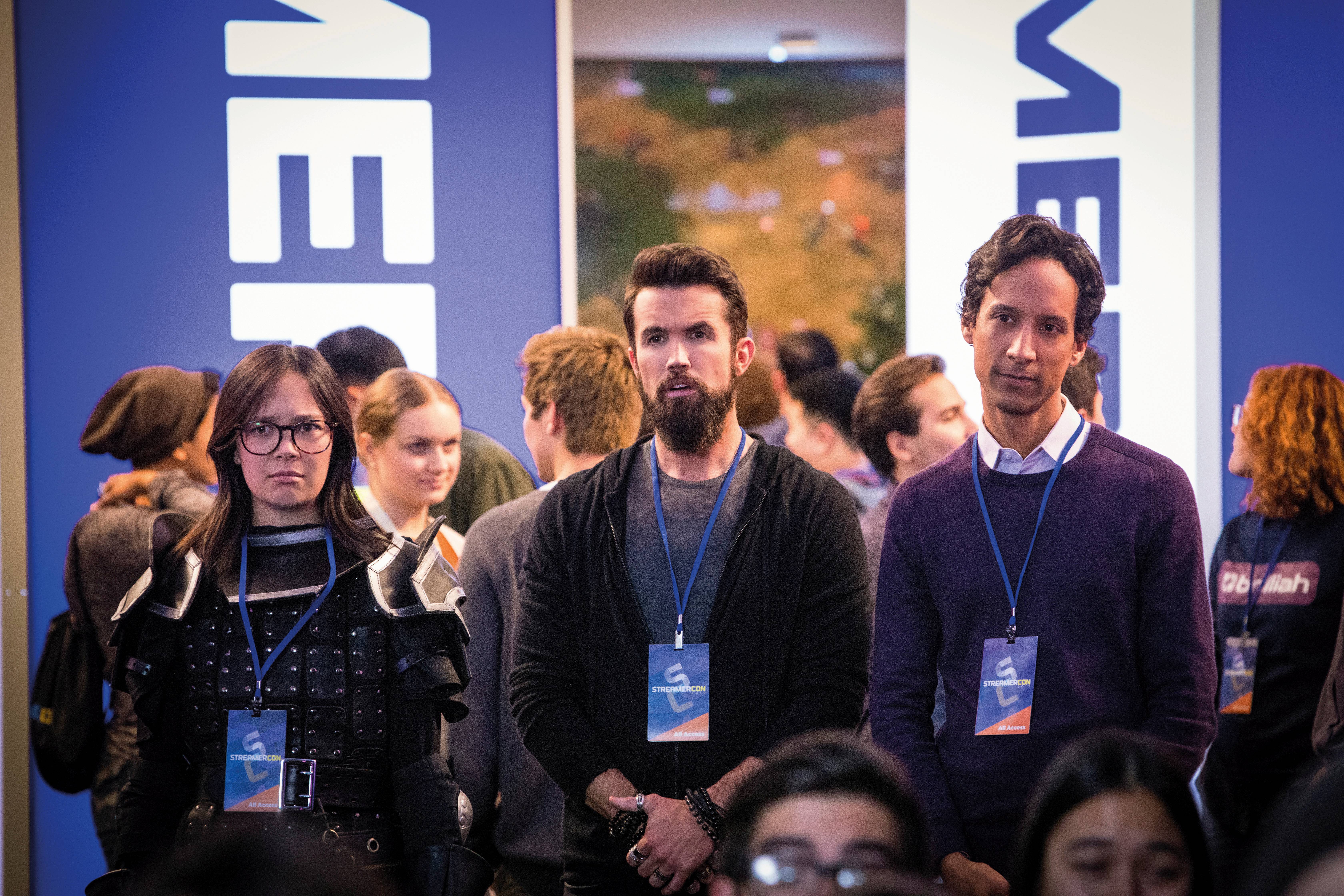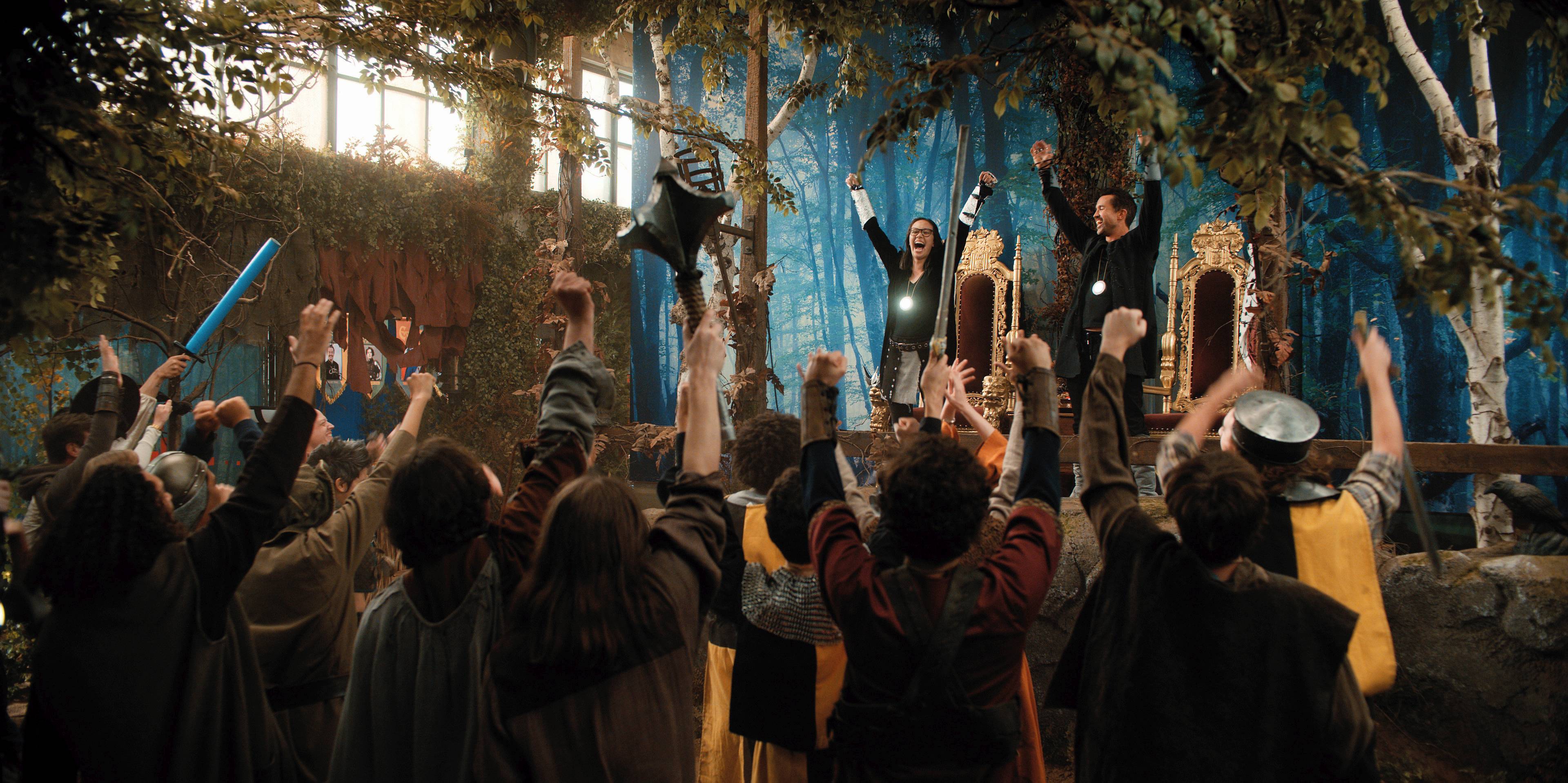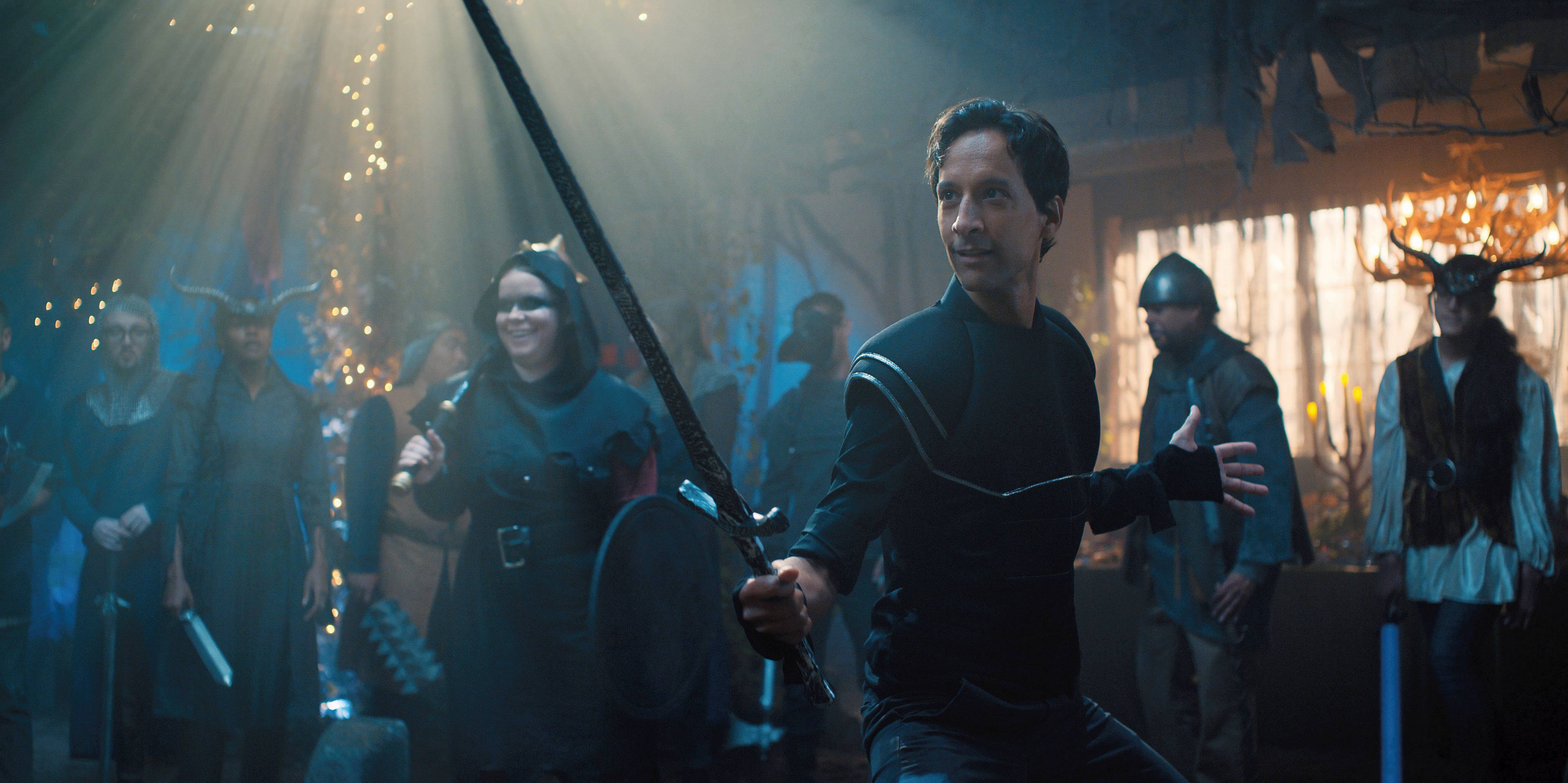Mythic Quest keeps facing real gaming industry issues with a smile

This article first appeared in PC Gamer magazine issue 358 in July 2021. Every month we run exclusive features exploring the world of PC gaming—from behind-the-scenes previews, to incredible community stories, to fascinating interviews, and more.
Mythic Quest is a workplace sitcom about the dev team behind the most popular (fictional) MMORPG in the world. We talked to some of the actors and creators behind the show (which is co-produced by Ubisoft Film & Television) about the serious game industry issues it tackles with humour, how gamers and developers have responded to the show, and if there are any similarities between making a game and making a show about a game.
In Mythic Quest's pilot episode, the team was scrambling to complete its first expansion, called Raven's Banquet, and season two similarly begins with the gang hard at work on the next expansion: Titan's Rift. And in some ways, it sounds like making the second season of a television show might not be all that different from releasing a new expansion for a popular game. Viewers, like players, want something new and surprising, but there's some danger in straying too far from the formula fans have come to expect.

"What we've heard from our partners at Ubisoft is that gamers hate when you change anything about the game, but they also hate when you leave it the same," says Mythic Quest cocreator, executive producer and writer Megan Ganz. We're a fickle bunch.
"And that can be true of TV, too," says Ganz, a veteran of long-running shows like It's Always Sunny in Philadelphia and Community. "You're riding that line where it feels new and exciting, but it also still feels like the game that they all fell in love with."
At the same time, a new season (and perhaps a game expansion) provides a bit more room for creativity. "The nice thing about a second season of a TV show is that you've done all your work in the first season, your heavy lifting of setting up the characters and the situations, and making people fall in love with these characters," says Ganz. "And in the second season you just get to have fun."
Zoom or bust
Game development isn't just used as a backdrop in Mythic Quest. In just the second episode it was already smartly taking on some very real issues in the gaming industry, such as when the dev team discovered that white supremacists absolutely loved playing Mythic Quest. Another episode touched on how developers are forced to crunch to meet unrealistic deadlines. A special filmed and released during the COVID19 pandemic effectively showed not just the struggles of working from home (such as trying to teach octogenarian writer CW Longbottom how to use a webcam) but the very real issues of isolation and uncertainty.
We didn't want to gloss over the fact that it's hard to be a woman in the games industry"
And several episodes have addressed how difficult it can be for women and people of colour in the typically white male dominated industry.
Ashly Burch, who gamers already know from her dozens of roles in games like the Borderlands series and Life is Strange, plays QA tester Rachel on Mythic Quest, and also writes for the show. Her years of experience in the gaming industry went a long way toward informing the scripts and broaching these very real topics.
"Especially at the beginning of season one when I came in as a writer, that was a huge part of what I tried to bring to the writer's room, that perspective on the gaming industry and gaming culture," says Burch.
"And everyone on the show was really dedicated to trying to make Mythic Quest both a love letter to games but also accurate," Burch continues. "We didn't want to gloss over the fact that it's hard to be a woman in the games industry, or that it's hard to be a person of colour in the games industry sometimes."

Actor Imani Hakim, who plays Dana, another of Mythic Quest's QA testers, agrees. "The good thing is, this is a comedy so we're able to tackle these subjects and make them funny and find the humour within all of that," Hakim told us. "And it wouldn't be fair to make a show about gaming without talking about those adversities that women face in the gaming industry, and people of colour, we do talk about it. We don't push it in your face, but it's something that we're able to tell within the story, with humour. You will definitely see more of that [in season two]. It's authentic to the story."
Burch adds that another group was happy to see themselves reflected in the show: QA testers, whose dedication often goes unsung. "I've definitely had people on my Twitter feed say, thank you, I'm a QA tester, and we definitely feel like we're at the bottom of the totem pole, and it was really nice to see us represented in the show!"

And gamers give their feedback, too. Let's face it, if you make a sitcom about a paper company, you're probably not going to hear from tens of thousands of paper company employees. But if you make a show about games, you're definitely going to hear from gamers.
"I think we were really cognisant of that from the very beginning," says Charlotte Nicdao, who plays Poppy Li, co-creative director of the game. "And I know that during the development of the show one of the things that the writers and producers really wanted to do was create a show that was not making fun of gamer culture. The feedback that I've gotten is that the community sees that and it's all been really positive," she says. "And it's also been very cool to see all these actual game developers on Twitter talking about how a lot of this is very, very accurate to what their jobs are.
"It's fun to get to feel like we've been able to connect with that community. That was always something that we wanted to do."

Post a Comment